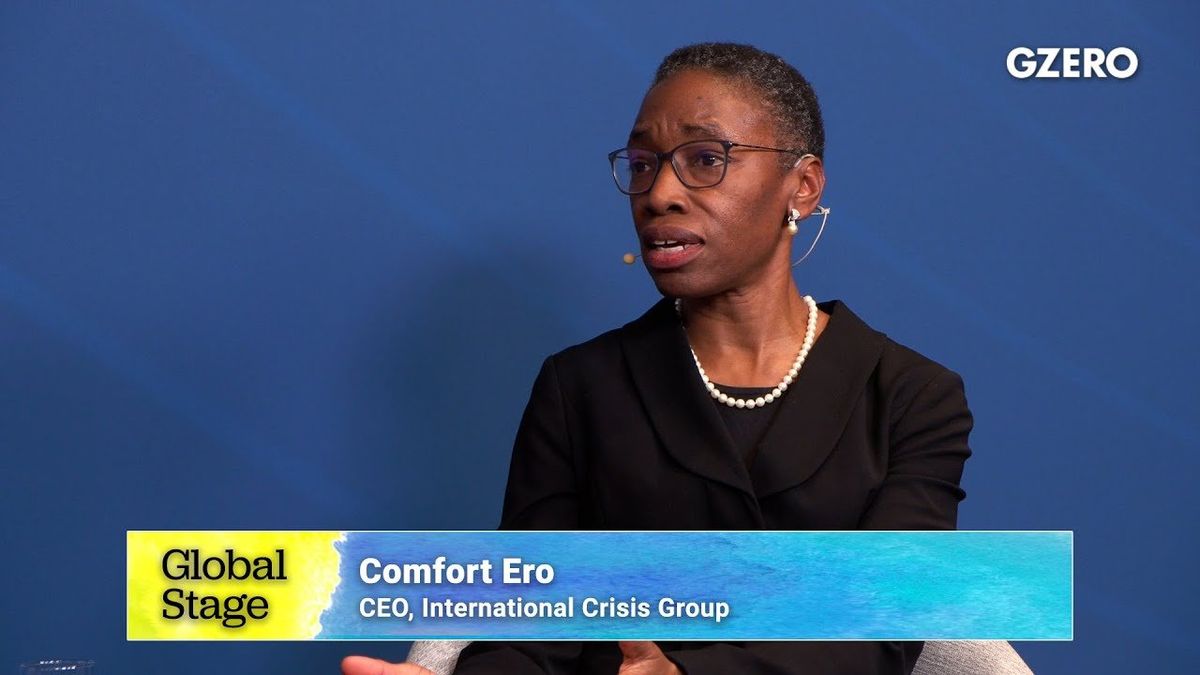Many knew Putin wasn't bluffing, but not how far he'd go, says International Crisis Group’s Comfort Ero
People rightfully focus on conflict prevention and deterrence, but global policy lagged behind when it came to preparing for the Russian invasion.
“What surprises me is that no actor says they’re surprised by what happened. You ask yourself, what about the steps that ought to have been taken?” says Comfort Ero, president and CEO of the International Crisis Group, during a Global Stage livestream conversation hosted by GZERO in partnership with Microsoft at the Munich Security Conference.
Some argue that the original sin was perhaps not dealing with the crises in Georgia and Crimea, she adds. Moving forward, she says, NATO and the West must focus on having anticipatory policies that prevent military aggression.
Watch the full Global Stage livestream conversation “Live from Munich: Ukraine and the Global Turning Point.”
- Ukraine tanks up ›
- Time favors ... Ukraine or Russia? ›
- Risks of Russia losing: Putin, Ukraine, and potential for escalation ›
- Putin would rather die than admit defeat in Ukraine, says former Croatian president ›
- The state of multilateralism: Shaky, fragile & stretched to capacity - GZERO Media ›
- Nobelist Oleksandra Matviichuk on Russia-Ukraine war reshaping world order - GZERO Media ›

















